
Premature Ovarian Failure
Step into a new era of healing at Infinity Stem Cells, where cutting-edge science meets the body’s innate potential. Our advanced cell regeneration therapies, centered on mesenchymal stem cells (MSCs), harness the transformative power of cellular renewal to address a wide range of conditions, restoring vitality and igniting wellness from within.
|
|
|
|
|
|
|
What is Premature Ovarian Failure
Premature Ovarian Failure (POF), also called Primary Ovarian Insufficiency (POI), is a condition in which the ovaries stop functioning normally before the age of 40. This means the ovaries fail to produce normal levels of hormones—especially estrogen—and may not release eggs regularly, leading to irregular or absent menstrual cycles and infertility.
Unlike early menopause, POF may still involve occasional ovarian function and ovulation. It can be caused by genetic factors, autoimmune disorders, medical treatments (like chemotherapy), or unknown reasons, and often affects emotional as well as physical health.

What Are the Symptoms?
Symptoms of POF often resemble those of natural menopause, but occur much earlier:
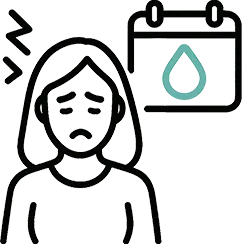
Irregular or missed periods
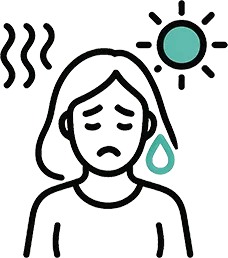
Hot flashes and night sweats
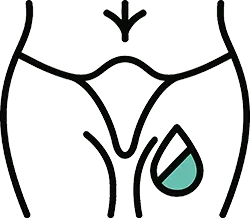
Vaginal dryness

Decreased libido
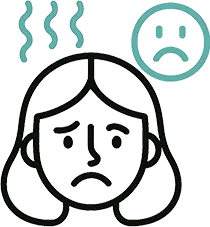
Mood swings, anxiety, or depression
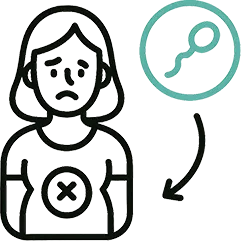
Difficulty getting pregnant
Current Treatments
for Premature Ovarian Failure
There is currently no cure for POF, but treatment focuses on managing symptoms, protecting long-term health, and supporting fertility goals:
Hormone Replacement Therapy (HRT): Estrogen and progesterone supplements help relieve menopausal symptoms and protect bone and heart health.
Calcium and Vitamin D: Supports bone strength and reduces osteoporosis risk.
Fertility Options: Egg or embryo donation is often the most effective option for achieving pregnancy. In some cases, natural ovulation may still occur, allowing for assisted reproduction.
Emotional and Psychological Support: Counseling or support groups help cope with the emotional impact of infertility and hormonal changes.
Lifestyle Care: Balanced nutrition, regular exercise, and avoiding smoking help protect long-term health.
What Are the Outcomes?
Although POF affects fertility and hormonal balance, many women lead healthy, fulfilling lives with proper care. While spontaneous pregnancies are rare, some women may still conceive. With HRT and regular medical monitoring, long-term complications such as osteoporosis and heart disease can be minimized.
Stem Cell Therapy for Premature Ovarian Failure
Stem cell therapy is an exciting area of research for restoring ovarian function in women with POF. This regenerative approach involves the use of mesenchymal stem cells (MSCs)—often sourced from bone marrow or adipose tissue—to help regenerate ovarian tissue and stimulate hormone production.
Potential Benefits:
May improve hormonal balance and menstrual function
Could stimulate natural ovulation and egg production
Offers hope for restoring fertility without egg donation
Minimally invasive and under clinical investigation
Though still experimental, early studies show promise. Stem cell therapy is currently available in select research settings and may offer a future option for women seeking innovative treatments beyond traditional care.
Science, Simplified: Our Therapy Process
Stem cell therapy for migraines is still experimental and not yet FDA-approved. However, clinical trials and early studies are showing encouraging results. Patients should consult healthcare providers and explore participation in regulated clinical programs.
Site
Target
Depth
Forehead & Eyes
Cheeks & Jawline
Under-Eye Area
Full Face
Wrinkles, crow’s feet
Volume loss, elasticity, hydration
Dark circles, fine lines
Texture, glow (via microneedling)
1–2 mm (superficial dermis)
2–4 mm (deep dermis)
1–1.5 mm (cautious use)
0.5–1.5 mm

Why Consider
Stem Cell Therapy?
Non-surgical and outpatient
Focuses on long-term healing, not just symptom relief
Supported by early-stage clinical research
Ethically sourced, high-quality regenerative cells
Find Out If You're a Candidate >>
Talk to an Expert >>
Explore the Science Behind It >>
Frequently Asked Questions
Is this FDA-approved?
Stem cell therapies using ethically sourced regenerative cells are regulated under strict guidelines by the FDA. While certain applications have explicit FDA approval, others are administered under FDA guidelines as investigational therapies, complying fully with regulatory standards to ensure safety and quality.
What are the risks or side effects?
Stem cell therapy is generally safe with minimal risk. Common mild side effects can include temporary soreness, swelling, or minor bruising at the injection site. Rarely, more serious complications such as infections or allergic reactions can occur. Our medical team thoroughly evaluates each patient to minimize these risks.
How long until I feel results?
Patients often notice initial improvements within days to weeks, with more substantial benefits progressively occurring over the following months as the regenerative process continues. Individual experiences can vary depending on the condition's severity and personal health factors.
How many sessions are required?
Many patients experience significant improvements after a single session. However, depending on individual conditions and response to treatment, additional sessions may be recommended to maximize outcomes. Our specialists provide personalized recommendations during your consultation.
Is this covered by insurance?
Insurance coverage varies depending on the specific policy and condition being treated. While regenerative therapies are not universally covered, some plans offer partial or full coverage. Our administrative team will assist you in verifying insurance coverage and exploring financial options to support your treatment.
Connect with Us
Quick Links
Copyright© 2025 Scientific Infinity - All Rights Reserved.
